Publications
Articles, publications, books, tools and multimedia features from the U.S. Institute of Peace provide the latest news, analysis, research findings, practitioner guides and reports, all related to the conflict zones and issues that are at the center of the Institute’s work to prevent and reduce violent conflict.
Question And Answer
Why Counterterrorism in Afghanistan and Pakistan Still Matters
Question And Answer
What Does the Xi-Ma Meeting Mean for Cross-Strait Relations?
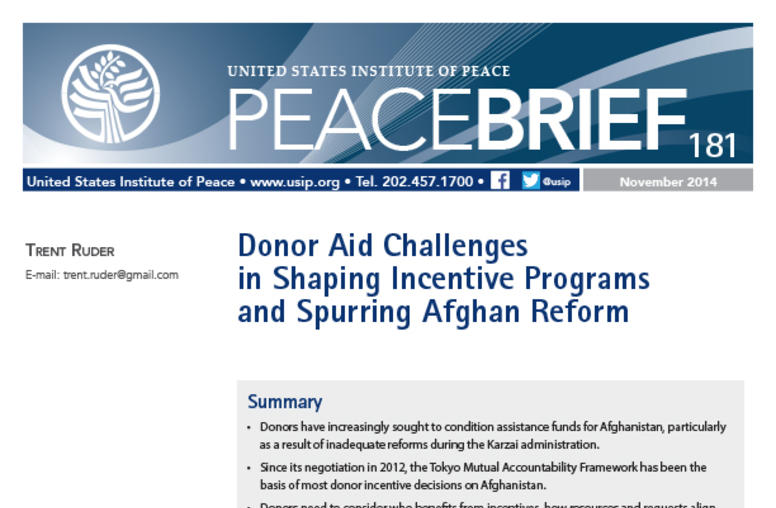
How to Spur Afghan Reforms: The Limits and Benefits of Incentives
Although not a magic bullet, incentive programming can help shape dialogue with the new Afghan administration. What are incentive programs? How do issues such as stakeholder participation, Afghan capacity and consequences of success or failure affect policy decisions for incentive programs? In addressing these questions, this PeaceBrief points the way to more effective incentive programming.
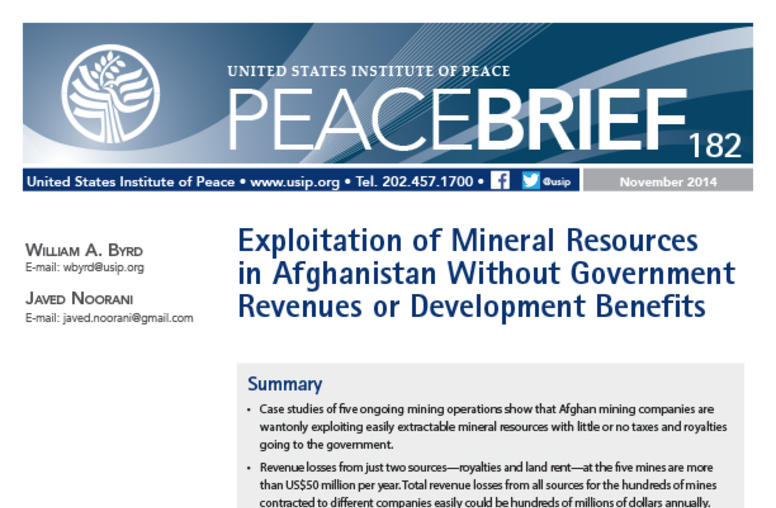
Exploitation of Mineral Resources in Afghanistan
Mining companies in Afghanistan are wantonly exploiting the country’s mineral resources with little or no taxes and royalties going to the government. Contracting of mines has been susceptible to political influence, there is little accountability and sometimes conflicts with local communities have led to violence and deaths. This Peace Brief examines these problems and offers some recommendations to improve the situation.
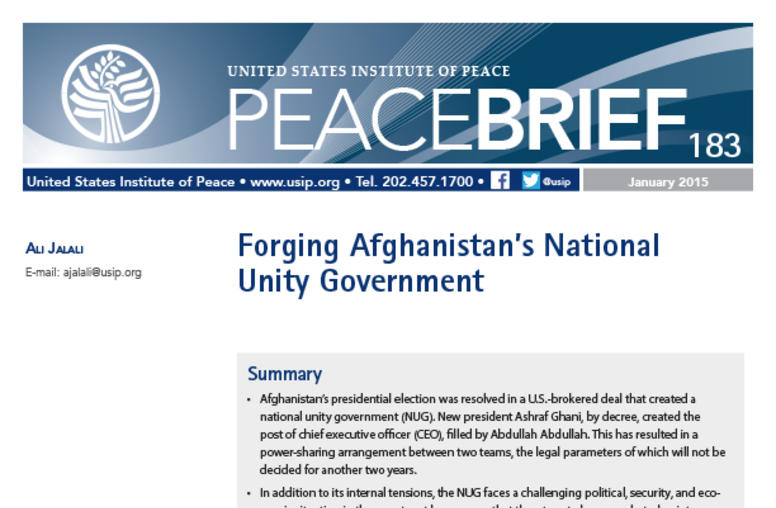
Forging Afghanistan’s National Unity Government
Afghanistan’s presidential election was resolved by a U.S.-brokered deal that led, ultimately, to a power-sharing arrangement within the new national unity government. This has set up tensions within the government—even as Afghanistan’s leaders face an uncertain political, economic, and security situation across the country, as international financial and military support draws down. The formation of the new government, however, also presents opportunities for serious reforms of Afghanistan’s...
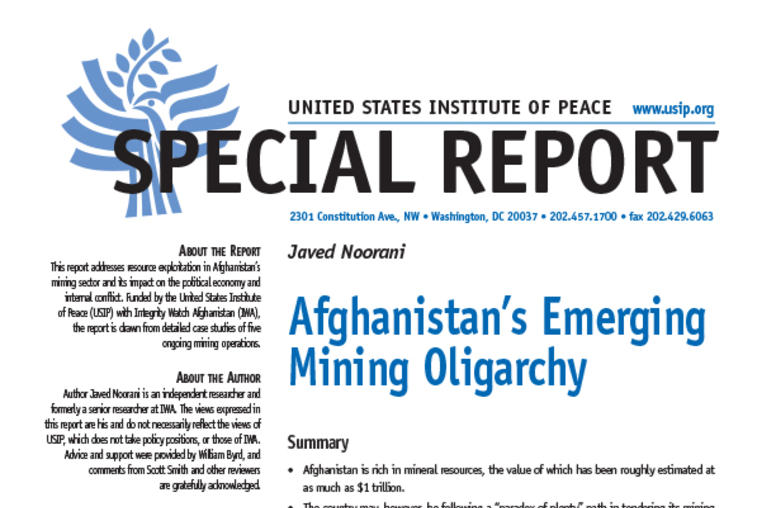
Afghanistan’s Emerging Mining Oligarchy
Rich in natural resources—ferrous and nonferrous metals and strategic minerals in particular—Afghanistan faces a dual threat as international troops withdraw and international aid declines. On the one hand are inadequate government revenues. On the other is the resource curse that affects so many low-income countries. This report, drawn from case studies of five ongoing Afghan mining operations, addresses resource exploitation, its impact on the political economy and internal conflict, and po...
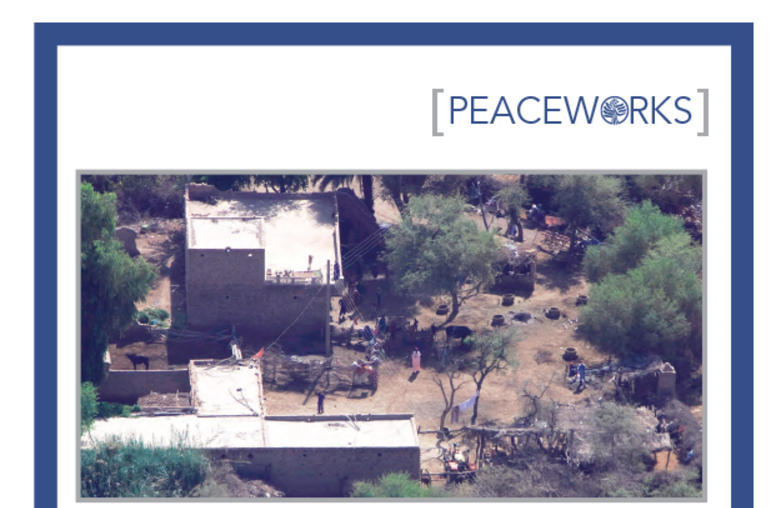
Conflict Dynamics in Sindh
Pakistan’s southern province of Sindh has a reputation for stability, diversity, and tolerance. It is also at a tipping point—increasingly threatened by violent extremism, crime, political corruption, tribal feuds, and nationalist and separatist movements. If the province is not to become yet another base for militants, as areas to the north already are, the government needs to act promptly and decisively. Addressing the security situation in Sindh is also integral to stabilizing Karachi, whi...
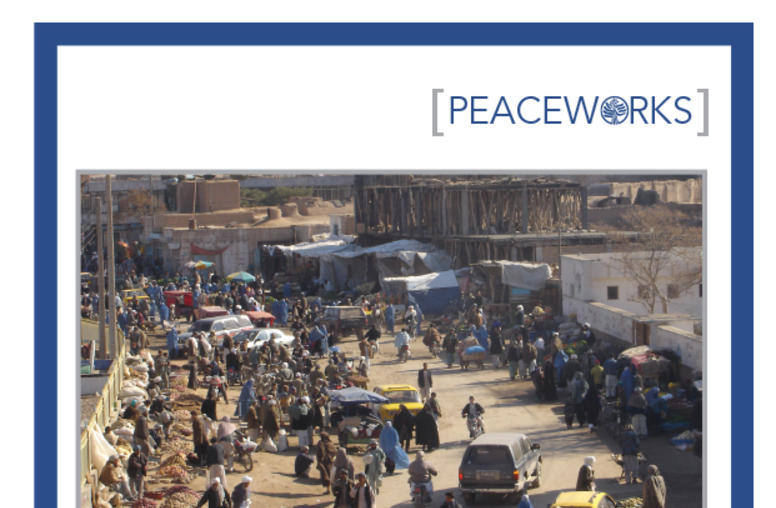
Political and Economic Dynamics of Herat
The city of Herat sits in Afghanistan’s most western province, on the border with Iran, and is significant on several counts. A major trading hub and the largest city in the region, it is in some respects an exemplar for the entire country. One the one hand it is a prevailing spirit of enterprise, on the other persistent insecurity and ad hoc urban development. How the new national unity government in Kabul unfolds will have significant implications for how Herat is able to meet the challenge...
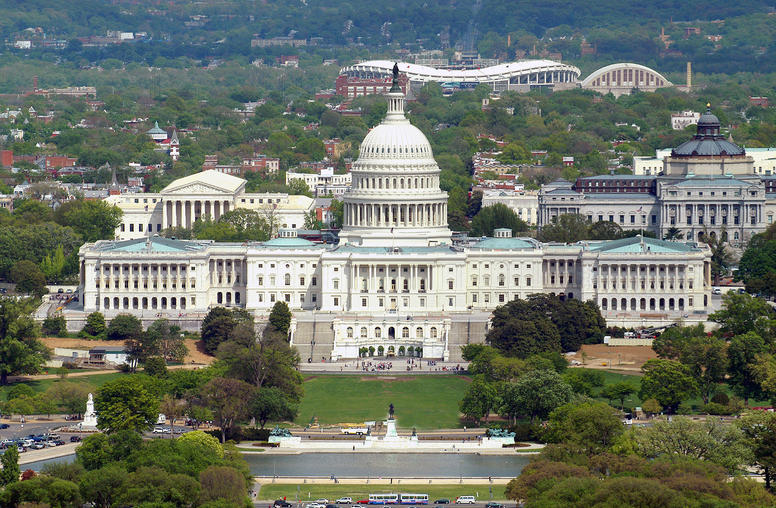
China’s Relations with Burma
Priscilla A. Clapp, senior advisor to the U.S. Institute of Peace, testifies before the U.S.-China Economic and Security Review Commission on China’s Relations with Southeast Asia.
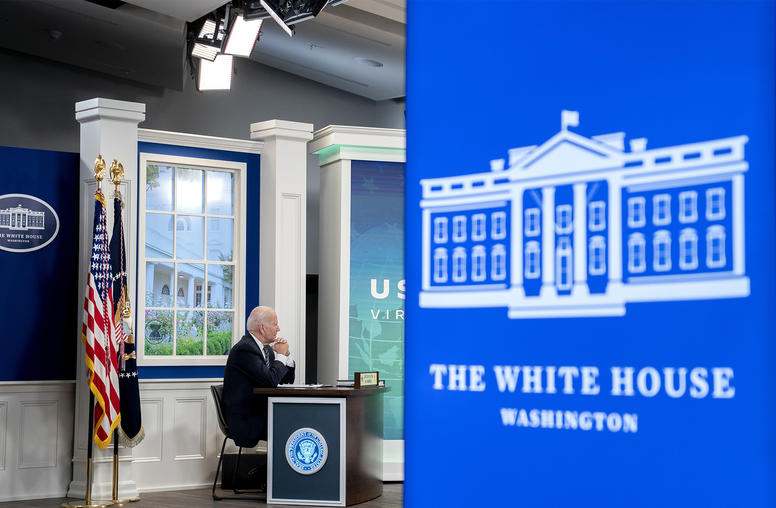
U.S.-ASEAN Summit Focused on Building Ties, Not Countering China
President Joe Biden attends a virtual U.S.-ASEAN Summit meeting, from the South Court Auditorium of the Eisenhower Executive Office Building on the White House grounds in Washington on Tuesday, Oct. 26, 2021. (Stefani Reynolds/The New York Times)
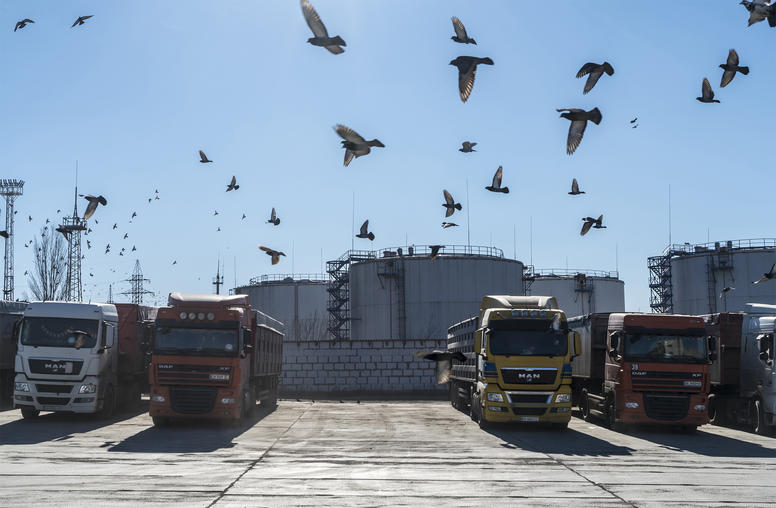
The Ukraine War is Deepening Global Food Insecurity — What Can Be Done?
Even before Russia invaded Ukraine, the global economy was suffering from the repercussions of several man-made conflicts, climate shocks, COVID-19 and rising costs — with devastating consequences for poor people in low-income and developing countries. The war in Ukraine — a major “breadbasket” for the world — is deepening these challenges on an unprecedented scale. In the immediate, swift and bold action is required by both wealthy and low-income nations to avert further humanitarian and economic catastrophe.

Morocco Reflects a Global South Dilemma: Water or Food?
Morocco, like many countries across the “global south,” faces an intensifying dilemma: While it has improved its food production to reduce food insecurity and undernourishment, that progress has stressed the country’s limited water supplies with water-intensive industrial farming practices. As climate change intensifies structural drought throughout the Maghreb, Sahel and elsewhere, these regions must develop policies that treat food insecurity and water scarcity as interlinked crises. U.S. and international support for these changes will be vital.